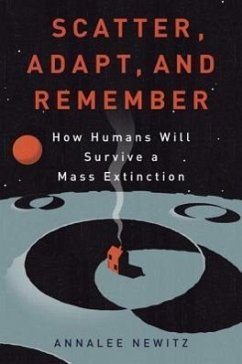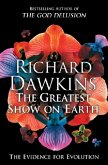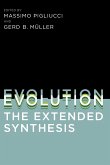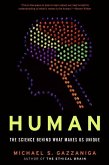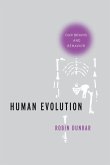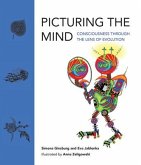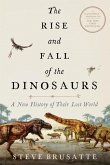Newitz's brilliantly speculative and hopeful work of popular science focuses attention on humanity's long history of dodging the bullet of extinction--and suggests practical ways to keep doing it.
Hinweis: Dieser Artikel kann nur an eine deutsche Lieferadresse ausgeliefert werden.
Hinweis: Dieser Artikel kann nur an eine deutsche Lieferadresse ausgeliefert werden.
Terrific. . . . A whirlwind tour of geology, evolutionary biology, cultural anthropology and human history, as Newitz catalogs the terrifying disasters, catastrophes and genocides of geology and antiquity. . . . It s a refreshingly grand sweep for a popular science book. . . . This is a delight of a book, balanced on the knife-edge of disaster and delirious hope.
Cory Doctorow, Boing Boing
Fascinating. . . . [Newitz is] an excellent writer, with an effortless style. . . . The inner science geek in all of us will uncover some really cool stuff. . . . A terrific book that covers an astounding amount of ground in a manageable 300 pages. Newitz has done all the mental heavy lifting, all the hard work and research, and presented it so you get to enjoy it in a few days or weeks of fun reading. You will be smarter for it.
San Francisco Chronicle
Few things are more enjoyable than touring the apocalypse from the safety of your living room. Even as Scatter, Adapt, and Remember cheerfully reminds us that asteroid impacts, mega-volcanos and methane eruptions are certain to come, it suggests how humankind can survive and even thrive. Yes, Annalee Newitz promises, the world will end with a bang, but our species doesn t have to end with a whimper. Scatter, Adapt, and Remember is a guide to Homo sapiens next million years. I had fun reading this book and you will too.
Charles Mann, author of 1491
One of the best popular science books I ve read in a long, long time and perhaps the only one that takes such a clear-eyed view of the future.
Seth Mnookin, author of The Panic Virus
Keen research and clear writing. . . . Sometimes, a brilliant observer can make an end run around what appears endless scientific quibbling daubed with politics.
The Buffalo News
Scatter, Adapt, and Remember is a refreshingly optimistic and well thought out dissection of that perennial worry: the coming apocalypse. While everyone else stridently shouts about the end of days, this book asks and answers a simple question: If it s so bad, then why are we still alive? I found myself in awe of the incredible extinction events that humankind and life in general has already survived, and Newitz inspires us with engaging arguments that our race will keep reaching the end of the world and then keep living through it. Scatter, Adapt, and Remember intimately acquaints the reader with our two-hundred-thousand-year tradition of survival nothing less than our shared heritage as human beings.
Daniel H. Wilson, author of Robopocalypse and Amped
This book is not a survivalist guide but rather a grand historical overview that puts humanity in the middle of its evolution, with fascinating looks both back and forward in time. An enormous amount of knowledge is gathered here, and the book accomplishes something almost impossible, being extremely interesting on every single page. A real pleasure to read and think about.
Kim Stanley Robinson, author of the Mars trilogy
An animated and absorbing account into how life has survived mass extinctions so far . . . and what we need to do to make sure humans don t perish in the next one. . . . Humans may be experts at destroying the planet, but we are no slouches at preserving it, either, and Newitz s shrewd speculations are heartening.
Kirkus Reviews
Newitz s voice is fervent and earnest, and despite her gloomy topic, she leaves readers with hope for a long future.
Publishers Weekly
Cory Doctorow, Boing Boing
Fascinating. . . . [Newitz is] an excellent writer, with an effortless style. . . . The inner science geek in all of us will uncover some really cool stuff. . . . A terrific book that covers an astounding amount of ground in a manageable 300 pages. Newitz has done all the mental heavy lifting, all the hard work and research, and presented it so you get to enjoy it in a few days or weeks of fun reading. You will be smarter for it.
San Francisco Chronicle
Few things are more enjoyable than touring the apocalypse from the safety of your living room. Even as Scatter, Adapt, and Remember cheerfully reminds us that asteroid impacts, mega-volcanos and methane eruptions are certain to come, it suggests how humankind can survive and even thrive. Yes, Annalee Newitz promises, the world will end with a bang, but our species doesn t have to end with a whimper. Scatter, Adapt, and Remember is a guide to Homo sapiens next million years. I had fun reading this book and you will too.
Charles Mann, author of 1491
One of the best popular science books I ve read in a long, long time and perhaps the only one that takes such a clear-eyed view of the future.
Seth Mnookin, author of The Panic Virus
Keen research and clear writing. . . . Sometimes, a brilliant observer can make an end run around what appears endless scientific quibbling daubed with politics.
The Buffalo News
Scatter, Adapt, and Remember is a refreshingly optimistic and well thought out dissection of that perennial worry: the coming apocalypse. While everyone else stridently shouts about the end of days, this book asks and answers a simple question: If it s so bad, then why are we still alive? I found myself in awe of the incredible extinction events that humankind and life in general has already survived, and Newitz inspires us with engaging arguments that our race will keep reaching the end of the world and then keep living through it. Scatter, Adapt, and Remember intimately acquaints the reader with our two-hundred-thousand-year tradition of survival nothing less than our shared heritage as human beings.
Daniel H. Wilson, author of Robopocalypse and Amped
This book is not a survivalist guide but rather a grand historical overview that puts humanity in the middle of its evolution, with fascinating looks both back and forward in time. An enormous amount of knowledge is gathered here, and the book accomplishes something almost impossible, being extremely interesting on every single page. A real pleasure to read and think about.
Kim Stanley Robinson, author of the Mars trilogy
An animated and absorbing account into how life has survived mass extinctions so far . . . and what we need to do to make sure humans don t perish in the next one. . . . Humans may be experts at destroying the planet, but we are no slouches at preserving it, either, and Newitz s shrewd speculations are heartening.
Kirkus Reviews
Newitz s voice is fervent and earnest, and despite her gloomy topic, she leaves readers with hope for a long future.
Publishers Weekly

